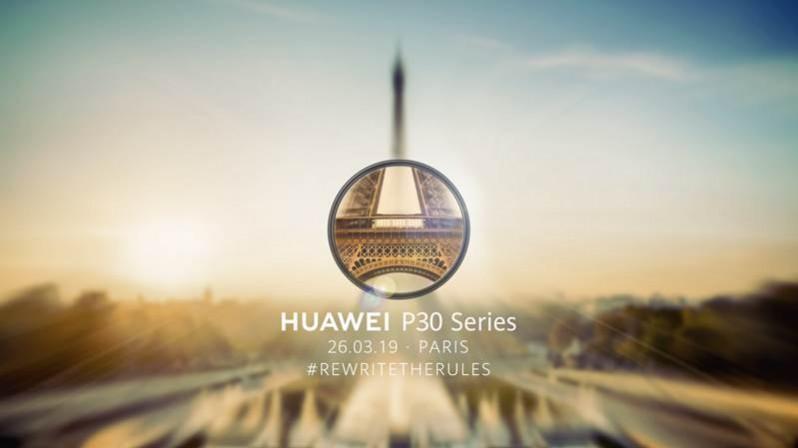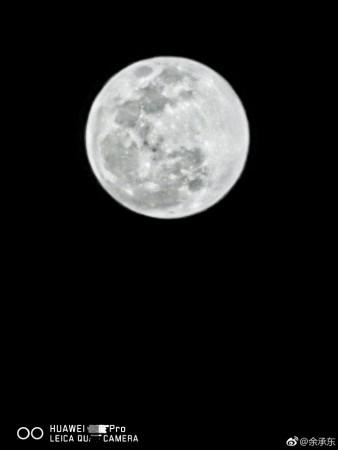Huawei confirmed that it will be giving a pass to MWC 2019 as it has planned a separate event to unveil the latest P30-series flagship. The Chinese smartphone giant is going to host the grand launch event in Paris on March 26, where it will show off the world its newest smartphones, the P30 and P30 Pro. Clearly, Huawei P30 Pro is expected to be a show stopper and a new post by the company CEO proves it.
Richard Yu, Huawei Consumer Group CEO, shared a photograph of the full moon on Weibo, which is not unusual. But the watermark at the bottom left-hand corner of the photo is what makes it newsworthy.
Despite efforts to redact some information, it is clear that the watermark reads "Huawei P30 Pro" and "Leica Quad Camera." These two hints are enough to confirm that the P30 Pro smartphone will have four Leica-branded cameras at the back. Huawei and Leica have partnered before for previous flagships such as P20 Pro, which doesn't make this collaboration surprising.
Rumours have been rife about the P30 Pro to feature a quad-camera setup, but there haven't been any solid evidence to back those rumours. That is until now. There is no clarity on what the fourth sensor is responsible for since three cameras in a Huawei smartphone have already been seen in P20 Pro and Mate 20 Pro.

Huawei has been teasing extraordinary zooming capabilities with the P30-series. Taking hints from past reports, it is possible that the P30 Pro will support 10x lossless optical zoom. The P30 is expected to have 5x lossless optical zoom, courtesy of its triple camera setup. The possible answer for the fourth camera sensor's role in the P30 Pro lies in the different camera set up in the upcoming phones, which could amplify the zooming capabilities without losing details.

Now, let's take a minute to address the actual photograph of the moon shot from a P30 Pro. For those of you who have tried taking a similar photo, it will be clear that most smartphones cannot retain that level of detail. The fact that Huawei P30 Pro is able to zoom in on the moon and capture the black spots and the white structure in its most natural form is quite commendable. This may not be the best shot of the moon, but it must be considered that the photo was obtained from Weibo, which compresses images.
2019 is indeed turning out to be a great year for smartphone enthusiasts. Xiaomi launched its Mi 9-series and Samsung made headlines with its Galaxy S10, but Huawei isn't going let its rivals have all the fun.

















